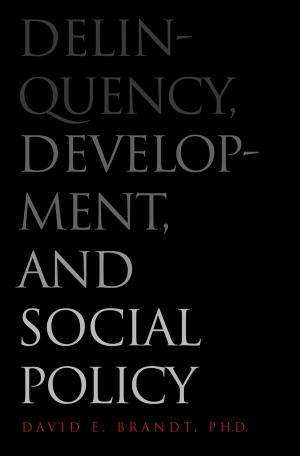Copycats and Contrarians
Why We Follow Others... and When We Don't
Business & Finance, Marketing & Sales, Consumer Behaviour, Nonfiction, Science & Nature, Science, Biological Sciences, Evolution, Health & Well Being, Psychology, Social Psychology| Author: | Michelle Baddeley | ISBN: | 9780300231823 |
| Publisher: | Yale University Press | Publication: | July 10, 2018 |
| Imprint: | Yale University Press | Language: | English |
| Author: | Michelle Baddeley |
| ISBN: | 9780300231823 |
| Publisher: | Yale University Press |
| Publication: | July 10, 2018 |
| Imprint: | Yale University Press |
| Language: | English |
A multidisciplinary exploration of our human inclination to herd and why our instinct to copy others can be dangerous in today’s interlinked world
Rioting teenagers, tumbling stock markets, and the spread of religious terrorism appear to have little in common, but all are driven by the same basic instincts: the tendency to herd, follow, and imitate others. In today’s interconnected world, group choices all too often seem maladaptive. With unprecedented speed, information flashes across the globe and drives rapid shifts in group opinion. Adverse results can include speculative economic bubbles, irrational denigration of scientists and other experts, seismic political reversals, and more.
Drawing on insights from across the social, behavioral, and natural sciences, Michelle Baddeley explores contexts in which behavior is driven by the herd. She analyzes the rational vs. nonrational and cognitive vs. emotional forces involved, and she investigates why herding only sometimes works out well. With new perspectives on followers, leaders, and the pros and cons of herd behavior, Baddeley shines vivid light on human behavior in the context of our ever-more-connected world.
A multidisciplinary exploration of our human inclination to herd and why our instinct to copy others can be dangerous in today’s interlinked world
Rioting teenagers, tumbling stock markets, and the spread of religious terrorism appear to have little in common, but all are driven by the same basic instincts: the tendency to herd, follow, and imitate others. In today’s interconnected world, group choices all too often seem maladaptive. With unprecedented speed, information flashes across the globe and drives rapid shifts in group opinion. Adverse results can include speculative economic bubbles, irrational denigration of scientists and other experts, seismic political reversals, and more.
Drawing on insights from across the social, behavioral, and natural sciences, Michelle Baddeley explores contexts in which behavior is driven by the herd. She analyzes the rational vs. nonrational and cognitive vs. emotional forces involved, and she investigates why herding only sometimes works out well. With new perspectives on followers, leaders, and the pros and cons of herd behavior, Baddeley shines vivid light on human behavior in the context of our ever-more-connected world.















